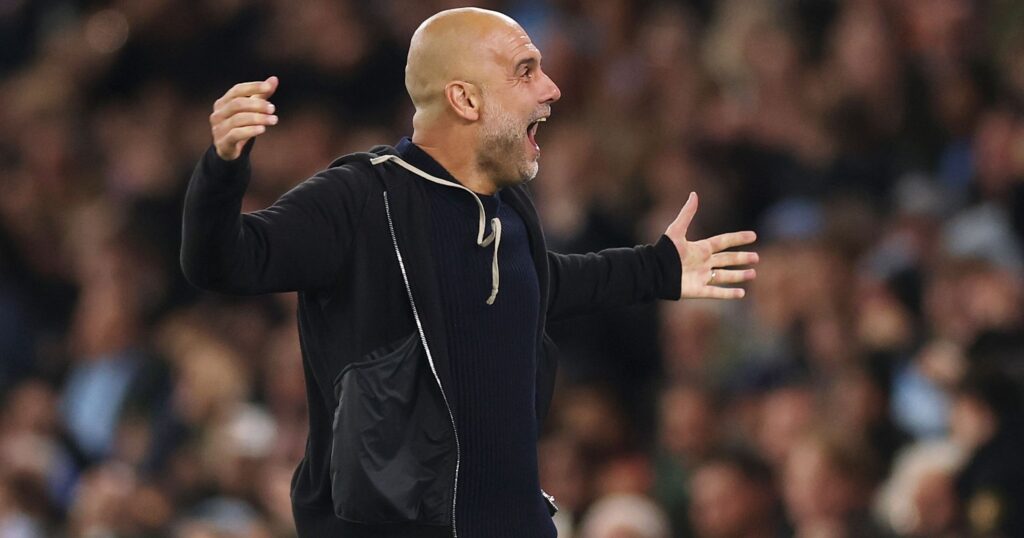In a recent match full of tension and excitement, Pep Guardiola acknowledged that Manchester City has had a “bad” season overall, despite their narrow victory over Aston Villa that propelled them into third place in the Premier League standings. This late triumph came courtesy of a dramatic 94th-minute goal by Matheus Nunes, who expertly met a cross from teammate Jeremy Doku at the back post. The win ensured that Manchester City triumphed with a final score of 2-1 after an earlier equalizer from Marcus Rashford, who converted a penalty in the first half to negate Bernardo Silva’s early strike for City.
As Guardiola celebrated the crucial win, a vital step towards their aspirations of qualifying for the UEFA Champions League, he couldn’t help but express his disappointment with the overall season. In an interview with Sky Sports, he stated unequivocally, “The season has been bad, not good.” Guardiola emphasized that real success for him comes not from achievements in the domestic cup competitions or even the prestigious Champions League, but from consistent performances in the Premier League—the league that ultimately defines a team’s quality over its competitors. He lamented, “The reality is what makes you feel the season is good is the Premier League, not the Champions League, not the FA Cup… we have not been consistent, but it happens.”
Reflecting on the journey throughout the season, Guardiola pointed to an evident transformation in the team’s demeanor and performance since their FA Cup game against Bournemouth. He noted that while City had displayed commendable fighting spirit even in their less skillful outings against Manchester United and Everton, this energy had not been present consistently throughout the season—an observation that he termed “a lesson for the next season.” Guardiola’s candid remarks underline the intense expectations placed on his team and his desire for them to reclaim their waning form.
After the match, Guardiola took time to highlight the contributions of key players, particularly praising Jeremy Doku for his remarkable pace and creativity. He enthused, “I’m really happy… Aston Villa is a team to the last man, one of the top, one of the best teams in Europe.” The City manager lauded the collective effort in their performance, noting the team’s aggression in duels and the outstanding play from the defensive line. “Football is emotion,” he added, recognizing the weight of pressure on his team to secure a Champions League spot, not just for themselves, but for the loyal fans who support them.
On the other side, Aston Villa’s manager, Unai Emery, found himself grappling with a mix of frustration and pride following the last-minute loss. Clearly affected by the late goal, he remarked, “We can’t waste time; we lost in the last minute… we were close to drawing.” Emery commended his players for their competitiveness, noting that despite Manchester City’s dominance over much of the match, Villa had moments of strength. He also recognized the importance of maintaining a positive outlook, stating, “I’m going to analyze the match and try to get a lot of information from it.”
He encouraged his team to keep pushing their level of performance and not to allow this setback to define their progress as they look forward to upcoming fixtures. By focusing on their preparations for the next game against Crystal Palace, Emery emphasized the need for hard work and renewed determination within their ranks. “Tomorrow, rest. Thursday and Friday, positive and work hard to prepare,” he concluded, setting the tone for quickly moving forward from this heart-wrenching defeat.
In conclusion, both managers showcased contrasting perspectives in the aftermath of the gripping encounter, which undoubtedly serves as a microcosm of the highs and lows inherent in competitive football. As fans continue to tune in to watch the Premier League and Champions League unfold, the stakes grow ever higher, making each decisive moment in these matches all the more significant.











